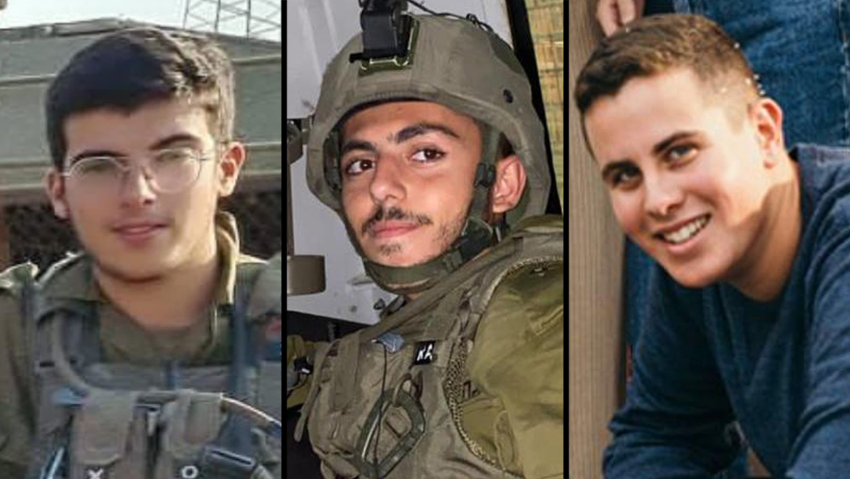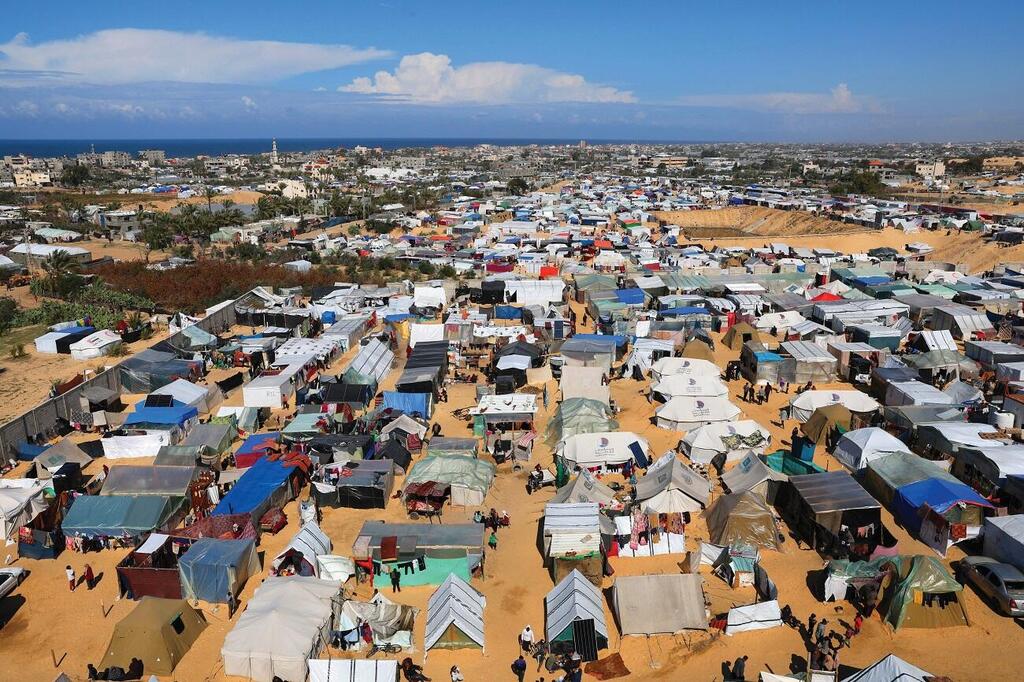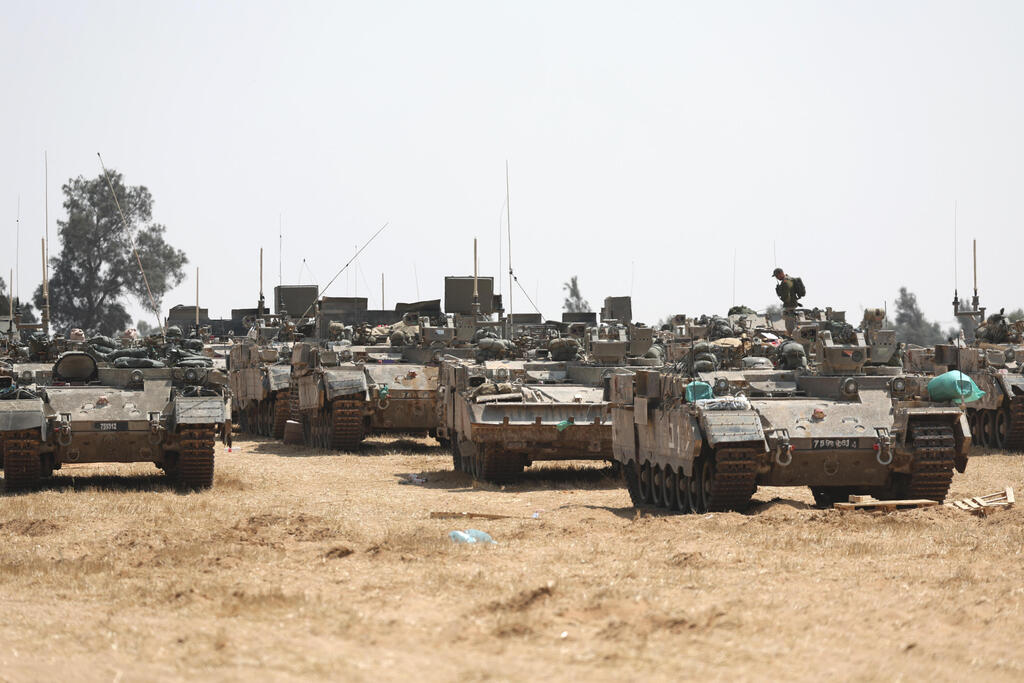Getting your Trinity Audio player ready...
The negotiations in Cairo concerning the hostages concluded without Hamas accepting the Israeli-American outline for a deal, and Sunday's rocket and mortar fire from Rafah into Israeli territory killed three IDF soldiers. This can lead to only one decision: The IDF should begin an operation in Rafah immediately.
Earlier on Sunday, the War Cabinet met, likely to decide which of the IDF's strategic plans, carefully prepared and practiced, should be implemented immediately. This decision aims to maintain international and U.S. support and to significantly degrade Hamas' military strength in the Gaza Strip.
3 View gallery


The three fallen soldiers: First sergeant Ruben Marc Mordechai Assouline, First sergeant Tal Shavit and First sergeant Ido Testa
(Photo: IDF Spokesperson's Unit)
The breakdown of the Cairo talks suggests that Hamas leader Yahya Sinwar and his team are reluctant to compromise. They face little to no substantial pressure to agree on any sort of deal regarding the hostages, whether partial or complete. In fact, they seem to have a vested interest in prolonging the negotiations, potentially for weeks or even months.
They likely believe that ongoing international scrutiny and domestic pressures in Israel, fueled by protests from the families of the hostages and their advocates, will eventually compel not only key ministers but also Prime Minister Benjamin Netanyahu and ministers Bezalel Smotrich and Itamar Ben-Gvir to push for an end to the conflict.
Therefore, Israel finds itself with practically no other choice but to use military force against Hamas. The viable military strategies include a tactical advance into Rafah and the central camp areas, or possibly initiating another intense operation in the northern sector of the Strip. Using humanitarian aid as a bargaining chip is off the table; it would trigger direct conflicts with the U.S. administration and the global community. However, leveraging military power as Hamas continues its defiant resistance – amplified by U.S. pressure on Israel – remains a viable course of action.
The barrage of rockets and mortars fired from Gaza into Israeli territory Sunday starkly underscores the untenable situation of Hamas and Islamic Jihad operating as organized terrorist factions within the Gaza Strip, even if confined to a small sector like Rafah. This situation is unacceptable not merely because of the casualties inflicted on Israeli soldiers, or the damage to civilian properties like the one at Kibbutz Kerem Shalom, but because such attacks demonstrate that, as long as Hamas and Islamic Jihad remain active anywhere in Gaza, the people of the Western Negev cannot safely return to their everyday lives.
3 View gallery


Rafah offensive looms - Will it be civilian-casualty free?
(Photo: Ibraheem Abu Mustafa, Reuters)
Despite recent successful IDF operations in the northern Gaza Strip that momentarily halted rocket fire, these attacks have sporadically resumed after Israeli forces pulled back. Most of these attacks have been ineffective, with many rockets not even clearing the borders of the Strip. Typically, these have been isolated, poorly coordinated rocket or mortar firings.
Sunday’s events in Rafah, however, appear to be a more calculated and militarily coordinated effort. It's likely that these strikes, based on precise intelligence and executed with deliberate coordination by what can only be described as a Hamas-led terror operation, were aimed at specific Israeli military targets. The coordination likely came from a centralized command, meticulously aiming to inflict casualties and send a defiant message to both the Muslim and Palestinian communities: Hamas remains unyielding and fearless of any IDF advancements into Rafah, even under the current tense circumstances.
Amid the grief for those we have lost, it is unmistakably clear to both the international community and domestically that decisive action in Rafah is imperative. This is not only to dismantle the threats posed by Hamas and Islamic Jihad and to prevent them from regaining military prowess elsewhere in the Strip, but also to secure a deal for the release of hostages without succumbing to Hamas' narrative of forcing Israel to end the conflict on their terms.
The tragic circumstances resulting in the death of our soldiers from the anticipated rocket and mortar fire must be exhaustively analyzed to extract essential lessons. While we hope there was no oversight or error involved, the presence of such would not alter the essential truth: The IDF needs to engage in Rafah, and it must be underscored that such actions should be executed with prudence.
The IDF has developed several strategic plans tailored to the scope of the operation and the necessity of relocating Gaza's refugee populace. It is anticipated that the War Cabinet will select one of these plans and swiftly implement it without hesitation.


